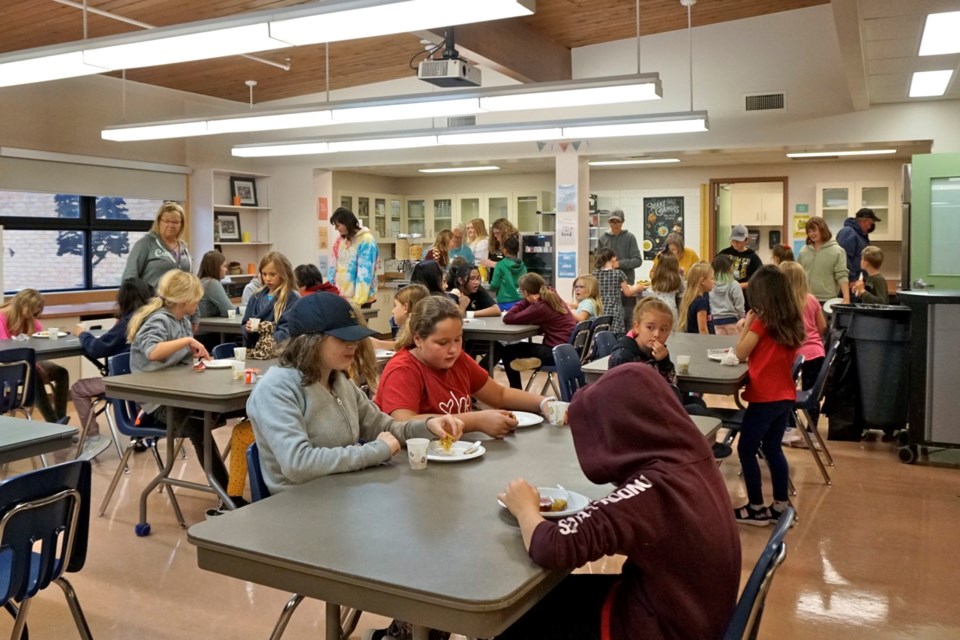PRINCE ALBERT — Representatives from Prince Albert’s two largest school divisions welcomed Prime Minister Justin Trudeau’s announcement about a new National School Food Program but said they’ll need more details to determine if it will be effective.
Trudeau announced the five-year $1 billion allocation on Monday. The program will launch with a target of providing meals to 400,000 more kids every year, beyond those served by existing school food programs. The program will be included in the 2024 federal budget, which will be tabled on April 16.
Both the Prince Albert Catholic School Division and Saskatchewan Rivers School Division were happy to hear the announcement but await further details.
“The board did send a letter advocating for this, and obviously would be pleased that the advocating came to fruition,” Sask. Rivers Superintendent Garrette Tebay said.
"I know we were the only country in the G7 that didn't have a National School Food program, so it keeps us in line with those other nations,” she added.
Tebay said the letters were the last step in the process for the Canadian School Boards Association, who have been advocating for the program for some time. She said that the division is waiting for more details but they are happy to see a program of this type announced.
Prince Albert Catholic School Division director of education Lorel Trumier said they are also awaiting more details, but appreciate the federal government’s commitment.
"Obviously, there are children in need across the country,” Trumier said. “We are certainly anxiously awaiting to hear details and hopeful that this will have an impact for the children that need it.”
According to the Federal Government, the program will be a safety net for the kids who need this support the most. The lack of access to food disproportionately impacts children from lower-income families and racialized and Indigenous communities.
They said that this includes investments for First Nations, Inuit, and Métis communities as well as Self-Governing and Modern Treaty partners, many of whom have some of the highest rates of food insecurity in Canada.
They added that Investments will also support capacity building and engagement with Indigenous partners to co-develop culturally appropriate solutions. These partnerships will aim to tackle food insecurity by advancing Indigenous-led solutions and will further work on reconciliation.
The new National School Food Program will also help provinces, territories, and Indigenous partners expand their existing school food programs to make sure more children across the country can enjoy the healthy meals they need.
The Saskatchewan Rivers board passed a motion in support of the bill during their regular meeting In January. They sent a letter on behalf of the board to Members of Parliament in support of the bill.
Board chair Darlene Rowden received a letter from trustee Jaimie Smith-Windsor in her role as Saskatchewan School Boards Association (SSBA) president. The Canadian School Boards Association shared the template with the SSBA and Smith-Windsor encouraged all boards of education in the province to support the bill.
At the time, The Private Members Bill C-322 by Liberal MP Serge Cormier has passed a second reading and has been sent to the Standing Committee on Human Resources, Skills, Social Development and the Status of Persons with Disabilities.
Both school divisions work with partners such as the Feeding Our Futures Program, which provides emergency lunches.
"Like many school boards in Canada, we have been partnering with local and provincial partners over the years to ensure that we have food and nutrition programs in our schools,” Tebay said. “We're really excited to see how this announcement will enhance that.”
"As a school division, we're always looking for ways to support our children,” Trumier said. “That certainly would fall in the realm of the types of support we try to provide our students who are in need, so yes, we're always looking for those kinds of opportunities in whatever fashion that they come.”




